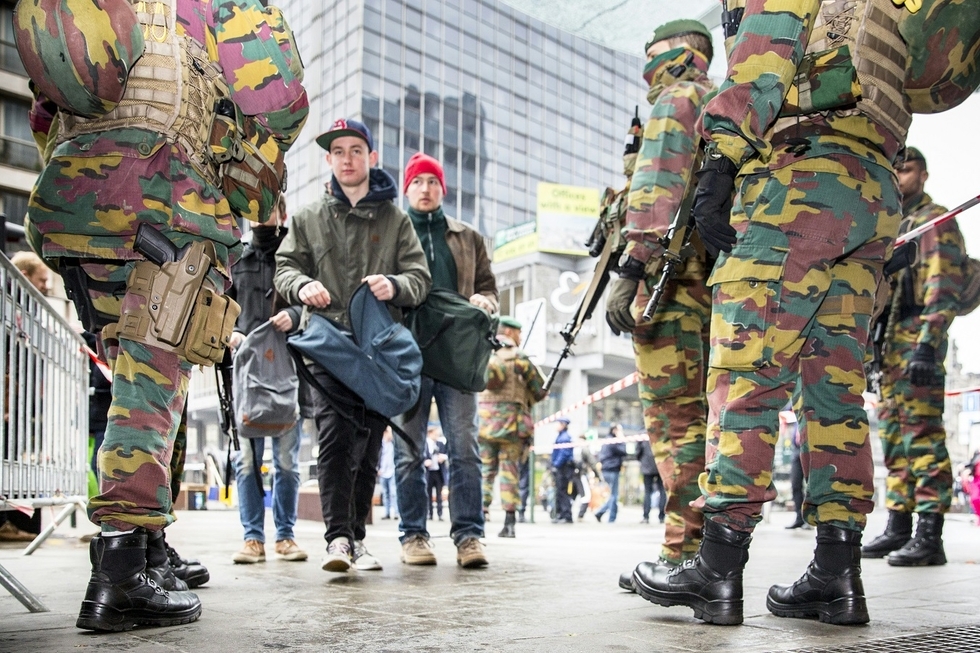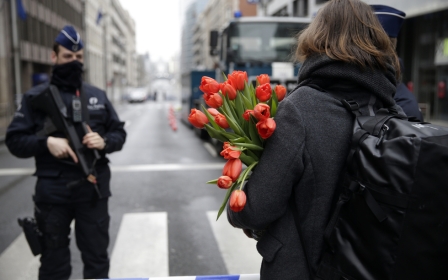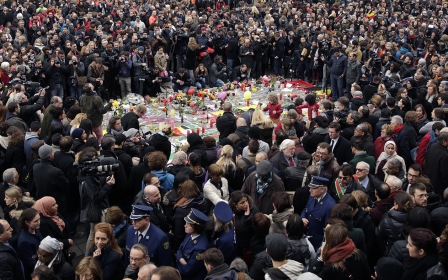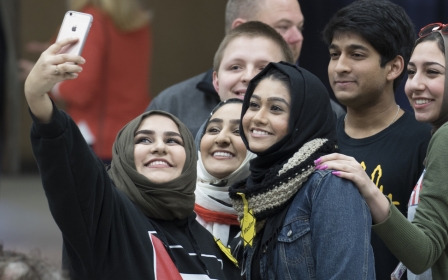Scrap Schengen and close borders, far-right parties tell EU after Brussels attacks

Several right-wing groups in the EU have lashed out at EU leaders after the deadly attacks in Brussels, saying that their policies failed to deal with the Islamic State attacks on European soil.
Citing open borders and a failure to deal with Islamic fundamentalism, the groups have described the EU’s policies as “weak” and “helpless” and called for borders to be shut.
Belgium’s far-right party Vlaams Belang tweeted at Prime Minister Charles Michel to “Please close the borders”.
“We cannot stop terrorism if they remain open,” the party said.
Mike Hookem, a member of the European Parliament and defence spokesman for the UK Independence Party (UKIP) said in a statement on Tuesday that the Brussels attack proved that terrorists can strike at the heart of Europe with ease.
“That is why I’m once again calling for an immediate suspension of the Schengen agreement, the reestablishment of border controls and an end to the EU’s open door migration policies that have allowed this situation to develop,” he said.
“How many more times will innocent people have to suffer at the hands of these animals before the EU realise their policies and their responses to incidents such as this are not working?”
Other groups emphasised that “Islamic hate” and radicalism were not being dealt with in the most effective way possible, and that a weak EU-wide response was paving the way for Islamic State militants to carry out massacres.
Italy’s right-wing Northern League meanwhile stated that it was “astonished and heartbroken for the lives broken by the Islamic State”.
“We aren’t responding,” said leaders Gian Marco Centinaio and Massimiliano Fedriga. “The EU institutions are weak, fragile, helpless and are turning the other way, allowing these massacres.”
Marine Le Pen of France’s far-right Front National party echoed these sentiments.
“I don’t get the sense that Islamic fundamentalism is being treated like the threat it really is,” she told reporters in Quebec where she was travelling. “And just like I saw in France in the past, here in Canada, whoever condemns Islamic fundamentalism is accused of Islamophobia.”
A call to tighten up controls also seems to have made it across the world to Australia where the right-wing Liberal Party Prime Minister Malcolm Turnball chimed in by blaming Europe’s “porous borders” for the attack.
"Australia is better placed than many of our European counterparts in dealing with the threat of terrorism because of the strength of our intelligence and security agencies, our secure borders and our successful multicultural society; one that manages to be both secure and free," he said.
“Our border protection, our domestic security arrangements, are much stronger than they are in Europe where regrettably they allowed security to slip."
Nor has it only been the right-wing that has been quick to blame the EU and its border policies.
Controversial UK politician George Galloway who heads the left-wing Respect Party told Russia Today: “Schengen agreements should have been suspended completely after the equally foul atrocity in Paris.”
IS militants are “well organised, and their murderous intent is uncheckable, they care nothing about giving their own lives in order to take others.”
At least 34 people were killed in Brussels when two suicide bombers detonated explosives at the airport and another explosion went off in a busy metro station.
Brothers Ibrahim and Khalid el-Bakraoui have now been named as two of the attackers with one brother bombing the metro and the other the airport. Prosecutors said that the pair were Belgium citizens and were known to police for years and had criminal records in Belgium going back to 2010.
A third suspect who has been named as Najim Laachraoui, 24, was reportedly a Brussels resident, and is currently on the run.
New MEE newsletter: Jerusalem Dispatch
Sign up to get the latest insights and analysis on Israel-Palestine, alongside Turkey Unpacked and other MEE newsletters
Middle East Eye delivers independent and unrivalled coverage and analysis of the Middle East, North Africa and beyond. To learn more about republishing this content and the associated fees, please fill out this form. More about MEE can be found here.




